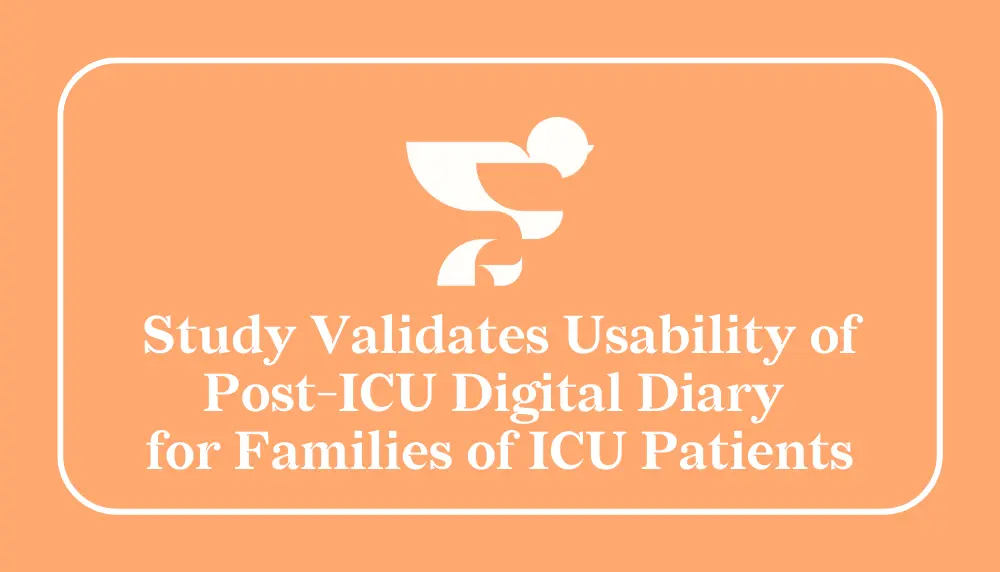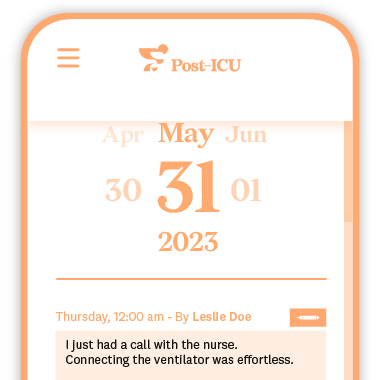Conducted by a team of experts in healthcare technology and patient care, the study sought to examine the usability of Post-ICU from the standpoint of relatives of ICU patients. The results demonstrate the immense potential of Post-ICU in enhancing communication, providing emotional support, and overall family engagement in the care process of their loved one.
Key findings
Key findings from the study include:
- All but one of the 63 participating relatives found the Post-ICU digital diary easy to use and were able to upload photos.
- 89% of the participating relatives stated that inviting other collaborators to their diary, including professional caregivers, was easily feasible.
- 98% of the participants reported that the Post-ICU diary has an attractive or appropriate layout.
- Technophobia was not found to influence the usability of the Post-ICU digital diary.
The principal investigator, Margo van Mol PhD, confirmed that the use of a digital diary may have advantages over a paper diary.

The CEO of Post-ICU, Seth van der Meer, expressed his excitement about the study’s results. “We’re thrilled to see that more and more scientific research is confirming the usability and positive impact of our Post-ICU digital diary. Previous research has already pointed out that professional caregivers endorse Post-ICU as an applicable and relevant tool to improve patient care, and this study proves that our digital diary is highly valued by family and relatives of ICU patients as well.”
This pilot study represents a significant step forward in the use of digital innovations to enhance the patient and family experience in critical care settings. The promising results pave the way for further research and the integration of Post-ICU into standard ICU healthcare practices, ultimately benefiting patients, their loved ones, and professional caregivers alike.
Post-ICU is dedicated to its mission of improving the lives of ICU patients and their families, while combating Post-Intensive Care Syndrome, through its innovative digital diary.
Link to full study
The study is freely available here.


